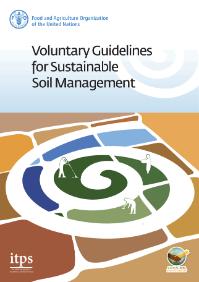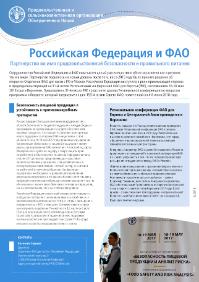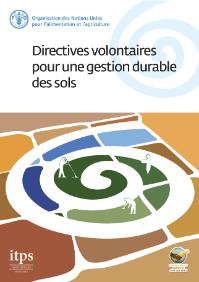Focal point
Location
The Food and Agriculture Organization of the United Nations leads international efforts to defeat hunger. Serving both developed and developing countries, FAO acts as a neutral forum where all nations meet as equals to negotiate agreements and debate policy. FAO is also a source of knowledge and information. We help developing countries and countries in transition modernize and improve agriculture, forestry and fisheries practices and ensure good nutrition for all. Since our founding in 1945, we have focused special attention on developing rural areas, home to 70 percent of the world's poor and hungry people.
Members:
Resources
Displaying 441 - 445 of 5074Handbook for saline soil management
This handbook has been prepared for the training workshop on innovative methods of amelioration and use of salt-affected soils, which takes place in Kharkiv, Ukraine, in September 2017. This workshop is conducted within the framework of the Implementation Plan of the Eurasian Soil Partnership, which is a sub-regional affiliation of the Global Soil Partnership.
Voluntary Guidelines for Sustainable Soil Management
The Voluntary Guidelines for Sustainable Soil Management (VGSSM) were adopted by the 4th GSP Plenary Assembly (Rome, 25 May 2016), approved by the 25th session of the FAO Committee on Agriculture (Rome, 28 September 2016) and finally endorsed by the 155th session of the FAO Council (Rome, 5 December 2016). These guidelines provide technical and policy recommendations on how sustainable soil management can be achieved. The successful implementation of these guidelines should pave the way to boost ing soil health
Российская федерация и ФАО
Сотрудничество Российской Федерации и ФАО охватывает целый ряд инициатив в области развития как в регионе,
так и в мире. Партнерство поднялось на новый уровень после того, как в 2015 году было принято решение оботкрытии Отделения ФАО для связи с РФ в Москве. Российская Федерация выступила в роли принимающей стороныи председательствующей на 31-й сессии Региональной конференции ФАО для Европы (РКЕ), состоявшейся 16-18 мая2018 года в Воронеже. Председатель 31-й сессии РКЕ представил доклад Региональной конференции по вопросамDirectives volontaires pour une gestion durable des sols
Les Directives volontaires pour une gestion durable des sols ont été élaborées dans le cadre d’un processus ouvert, au sein du Partenariat mondial sur les sols. Elles visent à servir de référence et à fournir à un vaste éventail de parties prenantes engagées des recommandations générales d’ordre technique et stratégique concernant la gestion durable des sols.
Improving ways to record tenure rights
This guide is about making the recording or registration of tenure rights more relevant to people who hold those tenure rights, and particularly to people who are currently poorly served by systems to record or register tenure rights. It provides practical advice on ways to improve the recording of tenure rights, including by addressing barriers that prevent people from using recording systems.











